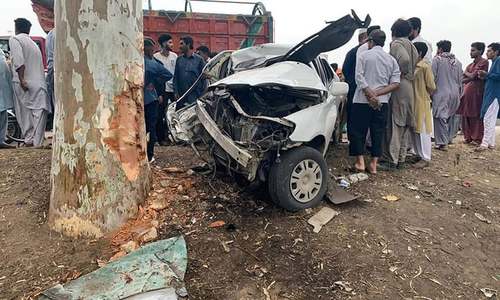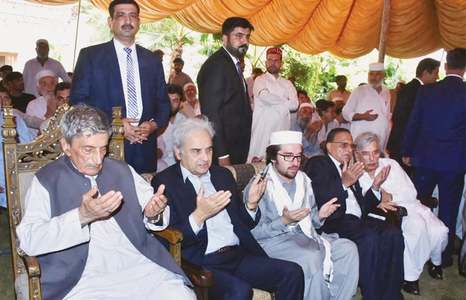ON Friday, PPP Punjab president Qamar Zaman Kaira’s son was killed in a car accident, along with his friend. To lose a child is one of the greatest sorrows to befall a parent, and messages of condolence began pouring in. Along with these expressions of grief, however, there was an outpouring of disgust at the way the news was broken to the father.
At a news conference in Islamabad, Mr Kaira learnt about a personal tragedy in a very public way as his private grief was broadcast live on television channels. As the cameras rolled, a journalist could be heard saying he had bad news regarding his son, “God have mercy”. When Mr Kaira inquired who, unable to hear clearly, another journalist informed him that his son had been in an accident. The visibly shocked politician excused himself from the conference, to make his way back to his constituency. At such a sensitive moment, perhaps the graceful thing to do would have been to take the father to the side and inform him privately. But in the age of breaking news, 24/7 broadcasting of human misery, near-constant vilification of ideological opponents and traditional politicians, and a voyeurism that blurs the boundary between the private and public selves, it seems that our sense of decency and dignity have been forgotten somewhere amongst all the noise.
This event should serve as a moment for reflection within the journalist community.
After years of campaigning, a national code of conduct for journalism was launched not too long ago. The six principles agreed upon were: truth and accuracy; pluralism; independence, fairness and impartiality; confidentiality and privacy; accountability and good governance; and finally, humanity and the duty to do no harm. There have been discussions on TV channels introducing stricter editorial controls and installing time-delay mechanisms during live broadcasts. Yet we keep seeing instances of violations of these principles. In the age of information, empathy should not become the casualty.
Published in Dawn, May 19th, 2019












































